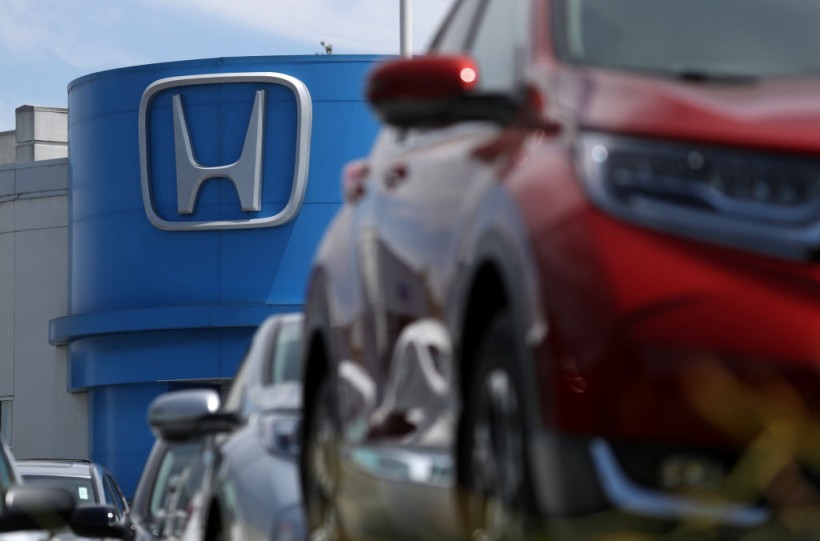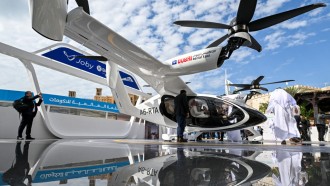Japanese automaker Honda is set to focus on an electric future in North America, with the release of two models developed with General Motors next year and a bigger EV featuring a new platform coming in 2025, according to a report by AP.
In an announcement of new initiatives on Wednesday, Honda President Toshihiro Mibe said that the company is pushing ahead with investments and partnerships to meet its electrification goals.

SAN RAFAEL, CALIFORNIA - JULY 25: The Honda logo is displayed at Marin Honda on July 25, 2019, in San Rafael, California. The State of California and four of the largest automakers in the world - Ford, VW, Honda, and BMW - have struck a deal to reduce auto emissions in the State of California ahead of the Trump administration's plans to eliminate an Obama-era regulation to reduce emissions from cars that are believed to contribute to global warming.
Powered by Electricity
Honda plans to have all its models powered by electricity or fuel cell, which is hydrogen-based and has zero emissions, by 2040. Moreover, the company aims to manufacture over 2 million EVs annually by 2030.
In Japan, Honda is set to introduce an EV based on the N-ONE model in 2025, with two more models to follow in the next year.
With the increasing efforts of governments to reduce emissions and tackle climate change, even previously doubtful consumers are now buying EVs, particularly in the US, China, Europe, Australia, and many more.
Nonetheless, it remains unclear whether Japanese automakers like Honda and Toyota can dominate the EV market as they have with conventional cars or whether new players will take the lead.
Some experts argue that auto manufacturing expertise and experience are transferrable to EV production, while others insist that the electric era represents a new frontier that presents opportunities for new entrants, as noted by AP.
The battery is a significant obstacle to the widespread adoption of EVs due to its weight and the challenges involved in developing it. Nonetheless, Honda has planned to team up with Japanese trading company Hanwa to ensure a stable supply of nickel, cobalt, and lithium for its batteries.
Read Also: Honda's EV Transition to Move Accord Sedan Production to Indiana! Start Date, Other Details
Manufacturing EVS in North America
In order to qualify for full tax credits under the US Inflation Reduction Act, Honda plans to manufacture its electric models in North America. These models will be assembled in Honda's three plants located in Ohio, including the Marysville plant.
To ensure compliance with the requirements, Honda will use batteries from General Motors and a joint venture with South Korea's LG Energy Solution.
Additionally, a percentage of the battery parts and minerals used in the manufacturing process will be sourced from North America or a US free trade partner.
Honda is making progress in developing solid-state batteries for EVs using their "E&E architecture" platform, which emphasizes the software, connectivity, and services that operate while driving and can be updated over time.
CEO Mibe acknowledges that this will be a difficult area for automakers to compete in. Additionally, Honda has been dealing with the global computer chip shortage that has affected all automakers due to pandemic-related restrictions.
However, Honda has made a preliminary agreement with TSMC, the world's largest semiconductor manufacturer based in Taiwan, to avoid future shortages.
Related Article: Honda Unveils 3rd-gen Autonomous Work Vehicle for Easier Transport, Delivery of Construction Materials










